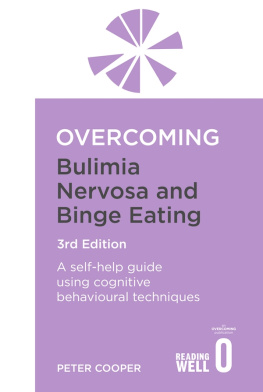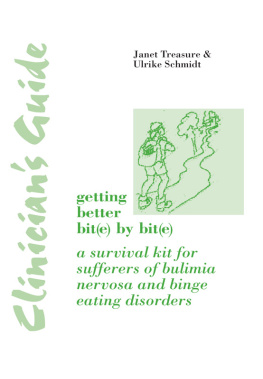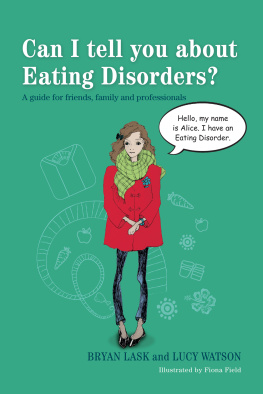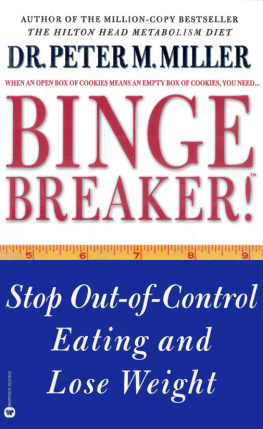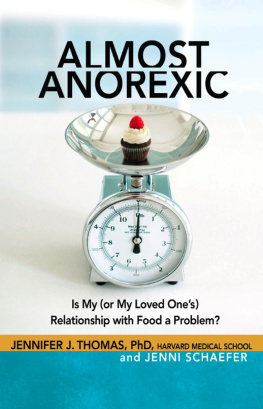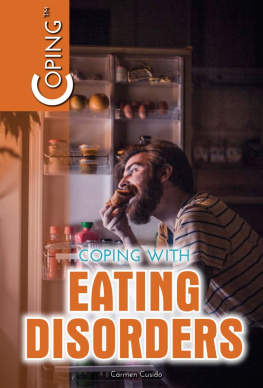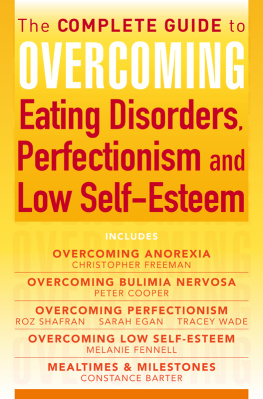Peter J. Cooper is Professor of Psychopathology at the University of Reading, and Honorary NHS consultant in Clinical Psychology.
The aim of the Overcoming series is to enable people with a range of common problems and disorders to take control of their own recovery program. Each title, with its specially tailored program, is devised by a practising clinician using the latest techniques of cognitive behavioral therapy techniques which have been shown to be highly effective in helping people overcome their problems by changing the way they think about themselves and their difficulties. The series was initiated in 1993 by Peter Cooper, Professor of Psychology at Reading University in the UK whose book on overcoming bulimia nervosa and binge-eating continues to help many people in the UK, the USA, Australasia and Europe.
Titles in the series include:
OVERCOMING ANGER AND IRRITABILITY
OVERCOMING ANOREXIA NERVOSA
OVERCOMING ANXIETY
OVERCOMING BODY IMAGE PROBLEMS
OVERCOMING CHILDHOOD TRAUMA
OVERCOMING CHRONIC FATIGUE
OVERCOMING CHRONIC PAIN
OVERCOMING COMPULSIVE GAMBLING OVERCOMING DEPERSONALIZATION AND FEELINGS OF UNREALITY
OVERCOMING DEPRESSION
OVERCOMING GRIEF
OVERCOMING HEALTH ANXIETY
OVERCOMING INSOMNIA AND SLEEP PROBLEMS
OVERCOMING LOW SELF-ESTEEM
OVERCOMING MOOD SWINGS
OVERCOMING OBSESSIVE COMPULSIVE DISORDER
OVERCOMING PANIC
OVERCOMING PARANOID AND SUSPICIOUS THOUGHTS
OVERCOMING RELATIONSHIP PROBLEMS
OVERCOMING SEXUAL PROBLEMS
OVERCOMING SOCIAL ANXIETY AND SHYNESS
OVERCOMING STRESS
OVERCOMING TRAUMATIC STRESS
OVERCOMING WEIGHT PROBLEMS
OVERCOMING WORRY
OVERCOMING YOUR CHILDS FEARS AND WORRIES
OVERCOMING YOUR CHILDS SHYNESS AND SOCIAL ANXIETY
OVERCOMING YOUR SMOKING HABIT
All titles in the series are available by mail order.
Please see the order form at the back of this book.
www.overcoming.co.uk
OVERCOMING
BULIMIA
NERVOSA AND
BINGE-EATING
A self-help guide using
Cognitive Behavioral Techniques
PETER J. COOPER
Robinson
LONDON
Constable & Robinson Ltd
5556 Russell Square
London WC1B 4HP
www.constablerobinson.com
First published in the UK by Robinson in 1993
This edition published by Robinson, an imprint of Constable & Robinson Ltd 2009
Copyright and Peter J. Cooper 1993, 1995, 2009
The right of Peter J. Cooper to be identified as the author of this work has been asserted by him in accordance with the Copyright, Designs and Patents Act, 1988.
All rights reserved. No part of this publication may be reproduced in any form or by any means without the prior written permission of the publisher.
A copy of the British Library Cataloguing in
Publication Data is available from the British Library.
ISBN 9781472105714
Important Note
This book is not intended as a substitute for medical advice or treatment. Any person with a condition requiring medical attention should consult a qualified medical practitioner or suitable therapist.
Table of contents
Acknowledgements
The self-help manual which forms the major part of this book is based on the application of cognitive behavior therapy to bulimia nervosa and binge-eating. This application was first described by Dr Christopher Fairburn of the Department of Psychiatry at the University of Oxford in 1981 in an article in the journal Psychological Medicine. Over the course of the subsequent fifteen years, I worked with Dr Fairburn and his colleagues to develop and refine this method of treatment, and I am enormously indebted to Dr Fairburn for his advice and support in modifying the treatment program so that it can be presented in the form of a self-help manual.
The manual as it appears in this book has gone through a great many revisions. These have been motivated largely by the comments and criticisms I have received from people with bulimia nervosa who have been using the manual as a means to recovery. I am very grateful to them for their help in shaping the final version. I am particularly grateful to those people who have agreed to my including in this book direct quotations from their accounts of their problems and of their use of the manual.
A number of my colleagues were kind enough to read the original manuscript of this book and offer advice and criticism. For this service I am especially grateful to Sarah Beglin, Sian Coker, Carmel Fleming, Lynne Murray, Jane Steere and Christina Wood.
PJC
Preface
The main aim of this book is to give people with bulimia nervosa and binge-eating problems the means to help themselves towards recovery. To this end the core of it (Part Two) consists of a self-help manual, which sets out detailed guidelines about what steps need to be taken to restore control to ones eating. These guidelines are based on extensive research into the most effective means of treating people with bulimia nervosa.
The self-help manual as presented here has gone through many revisions. These have been made on the basis of the experience of myself and my colleagues in helping patients with bulimia nervosa use the manual. A great many of these patients have now done so and gained considerable benefit from it. It is now clear from research into the effectiveness of the manual, that the great majority of people with bulimia nervosa and binge-eating problems could profitably use the principles spelled out in this manual as a guide towards recovery.
It is important to be clear about what recovery from bulimia nervosa means. Many people do recover fully. They become able to eat normally without anxiety and without the concerns about their weight and shape which used to dominate their lives. However, many remain vulnerable to difficulties with food and related concerns, even if this vulnerability only becomes evident on rare occasions of stress. The existence of this residual susceptibility does not mean, however, that the person has not recovered. Indeed, a realistic notion of recovery that accepts that difficulties with eating may occasionally recur is both more realistic and more helpful than a rigid definition, and can be a protection against both disappointment and imprudence.
This book is principally intended for people with bulimia nervosa and variations of this disorder. However, it will be of use to some other people as well. The families and friends of people who binge often want to know more about the problem. Part One provides a brief account of the nature of bulimia nervosa and binge-eating problems which will be of use to them, as well as a note on the definition of bulimia nervosa and binge-eating and its relation to other eating disorders. Also, it is helpful to someone who is trying to use this manual if other people in their household are aware of what they are trying to do. By reading the manual, a parent, partner or friend can ensure that they give as much help as possible. Finally, it is suggested in the self-help manual that it is advisable for the person wishing to use it to recruit the assistance of a helper. This could be a friend or relative, but it is preferable if it is someone less closely involved with them, such as a general practitioner, a nurse or a dietitian. Clearly, for such a person to be of most help, they too need to know what advice is contained in the manual.
Introduction
Why a cognitive behavioral approach?
The approach this book takes in attempting to help you overcome your problems with bulimia nervosa and binge-eating is a cognitive-behavioral one. A brief account of the history of this form of intervention might be useful and encouraging. In the 1950s and 1960s a set of therapeutic techniques was developed, collectively termed behavior therapy. These techniques shared two basic features. First, they aimed to remove symptoms (such as anxiety) by dealing with those symptoms themselves, rather than their deep-seated underlying historical causes (traditionally the focus of psychoanalysis, the approach developed by Sigmund Freud and his associates). Second, they were scientifically based, in the sense that they used techniques derived from what laboratory psychologists were finding out about the mechanisms of learning, and these techniques were put to scientific test. The area where behavior therapy initially proved to be of most value was in the treatment of anxiety disorders, especially specific phobias (such as extreme fear of animals or heights) and agoraphobia, both notoriously difficult to treat using conventional psychotherapies.
Next page
